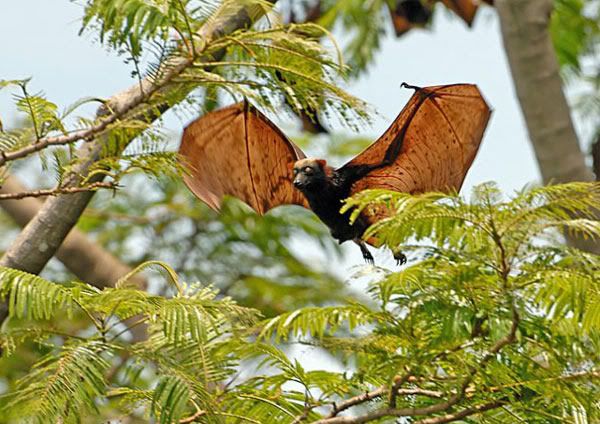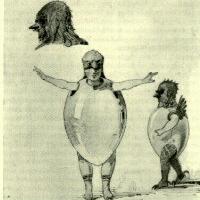April 19th over 2000 mostly 4th and 5th grade students will fill Emens Auditorium for the Muncie Symphony Orchestra's Young Peoples Concert.
The theme is ANIMALS.
Carnival of the Animals composed by Camille Saint Saens in 1886 is among the selections on the program. You might enjoy a preview, but not all the animals will be heard at the Young Peoples Concert. The accompanying YouTube Videos are by Julian Rachlin & friends. A free copy of the Score is available. Ogden Nash wrote a series of poems based on the composition. Poems by American writer Ogden Nash
INTRODUCTION
Camille Saint-Saens
Was wracked with pains,
When people addressed him,
As Saint-Saens.
He held the human race to blame,
Because it could not pronounce his name,
So, he turned with metronome and fife,
To glorify other kinds of life,
Be quiet please - for here begins
His salute to feathers, fur and fins.
Was wracked with pains,
When people addressed him,
As Saint-Saens.
He held the human race to blame,
Because it could not pronounce his name,
So, he turned with metronome and fife,
To glorify other kinds of life,
Be quiet please - for here begins
His salute to feathers, fur and fins.
THE LION
The lion is the king of beasts,
And husband of the lioness.
Gazelles and things on which he feasts
Address him as your highoness.
There are those that admire that roar of his,
In the African jungles and velds,
But, I think that wherever the lion is,
I’d rather be somewhere else.
Gazelles and things on which he feasts
Address him as your highoness.
There are those that admire that roar of his,
In the African jungles and velds,
But, I think that wherever the lion is,
I’d rather be somewhere else.
COCKS AND HENS
The rooster is a roistering hoodlum,
His battle cry is cock- a- doodleum.
Hands in pockets, cap over eye,
He whistles at pullets, passing by.
THE WILD DONKEY
Have ever you harked to the donkey wild,
Which scientists call the onager?
It sounds like the laugh of an idiot child,
Or a hepcat on a harmoniger,
But do not sneer at the donkey wild,
There is a method in his heehaw,
For with maidenly blush and accent mild
The donkey answers shee-haw.
THE TORTOISE
Come crown my brow with leaves of myrtle,
I know the tortoise is a turtle,
Come carve my name in stone immortal,
I know the turtoise is a tortle.
I know to my profound despair,
I bet on one to beat a hare,
I also know I’m now a pauper,
Because of its tortley, turtley, torper.
Come carve my name in stone immortal,
I know the turtoise is a tortle.
I know to my profound despair,
I bet on one to beat a hare,
I also know I’m now a pauper,
Because of its tortley, turtley, torper.
THE ELEPHANT
Elephants are useful friends,
Equipped with handles at both ends,
They have a wrinkled moth proof hide,
Their teeth are upside down, outside,
If you think the elephant preposterous,
You’ve probably never seen a rhinosterous.
They have a wrinkled moth proof hide,
Their teeth are upside down, outside,
If you think the elephant preposterous,
You’ve probably never seen a rhinosterous.
KANGAROOS
The kangaroo can jump incredible,
He has to jump because he is edible,
I could not eat a kangaroo,
But many fine Australians do,
Those with cookbooks as well as boomerangs,
Prefer him in tasty kangaroomeringues.
I could not eat a kangaroo,
But many fine Australians do,
Those with cookbooks as well as boomerangs,
Prefer him in tasty kangaroomeringues.
THE AQUARIUM
Some fish are minnows,
Some are whales,
People like dimples,
People like dimples,
Fish like scales,
Some fish are slim,
And some are round,
They don’t get cold,
They don’t get drowned,
But every fishwife
Fears for her fish,
What we call mermaids
They call merfish.
MULES
In the world of mules
There are no rules.
(Laughing, In the world of mules
There are no rules)
There are no rules.
(Laughing, In the world of mules
There are no rules)
THE CUCKOO IN THE WILD
Cuckoos lead bohemian lives,
They fail as husbands and as wives,
Therefore, they cynically disparage
Everybody else’s marriage
BIRDS
Puccini was Latin, and Wagner Teutonic,
And birds are incurably philharmonic,
Suburban yards and rural vistas
Are filled with avian Andrew Sisters.
The skylark sings a roundelay,
The crow sings “The Road to Mandalay,”
The nightingale sings a lullaby,
And the sea gull sings a gullaby.
That’s what shepherds listened to in Arcadia
Before somebody invented the radia.
PIANISTS
Some claim that pianists are human,
Heh, and quote the case of Mr. Truman.
Saint Saens on the other hand,
Considered them a scurvy band,
A blight they are he said, and simian,
Instead of normal men and wimian.
FOSSILS
At midnight in the museum hall,
The fossils gathered for a ball,
There were no drums or saxophones,
But just the clatter of their bones,
Rolling, rattling carefree circus,
Of mammoth polkas and mazurkas,
Pterodactyls and brontosauruses
Sang ghostly prehistoric choruses,
Amid the mastodonic wassail
I caught the eye of one small fossil,
“Cheer up sad world,” he said and winked,
“It’s kind of fun to be extinct.”
The swan can swim while sitting down,
For pure conceit he takes the crown,
He looks in the mirror over and ovea,
And claims to have never heard of Pavlova.
THE GRAND FINALE
Now we’ve reached the grand finale,
On an animalie, carnivalie,
Noises new to sea and land,
Issue from the skillful band,
All the strings contort their features,
Imitating crawly creatures,
All the brasses look like mumps
From blowing umpah, umpah, umps,
In outdoing Barnum and Bailey, and Ringling,
Saint Saens has done a miraculous thingling.
Another piece on the program is the Overture from Die Fledermaus by Johann Strauss II
Die Fledermaus means The Flying Bat.
Can you imagine this 3 pound 6 foot bat? Good thing it eats fruits and seeds!  |
| Giant golden-crowned flying-fox Bat |
 |
| Giant golden-crowned flying-fox |
Ballet of the unhatched Chickens by Mussorgsky (Pictures at an Exhibition)
When Mussorgsky wrote "Pictures at an Exhibition" in 1874 he was inspired by paintings and sketches by the painter Viktor Hartmann. Hartmann drew 17 costume and set designs for the ballet Trilby, four of which are extant. This is the sketch that inspired Mussorgsky's
Ballet of the Unhatched Chicks.

Trilby was first performed at the Bolshoi in 1871, with choreography by Marius Petipa and music by Julius Gerber, both celebrities in their day. The plot was loosely based on a short story by the French author Charles Nodier titled "Trilby, or the Elf of the Argyle", published in 1822 (there is no relation to DuMaurier's ballet Trilby, which appeared in 1895). Petipa moved the setting from Scotland to Switzerland, and made other substantive changes as well. The title was changed to "Trilby, the Demon of the Hearth". The ballet featured children from the Russian Imperial Ballet School dressed variously as birds, butterflies and, as in this sketch, chicks still in their eggs. source
You will just have to see this piano playing cat for yourself.
The Catcerto by Mindaugas Piecaitis
The Young Peoples Concert is free and open to the public. If you would like to attend, please call the MSO office for more information. 765-285-5531